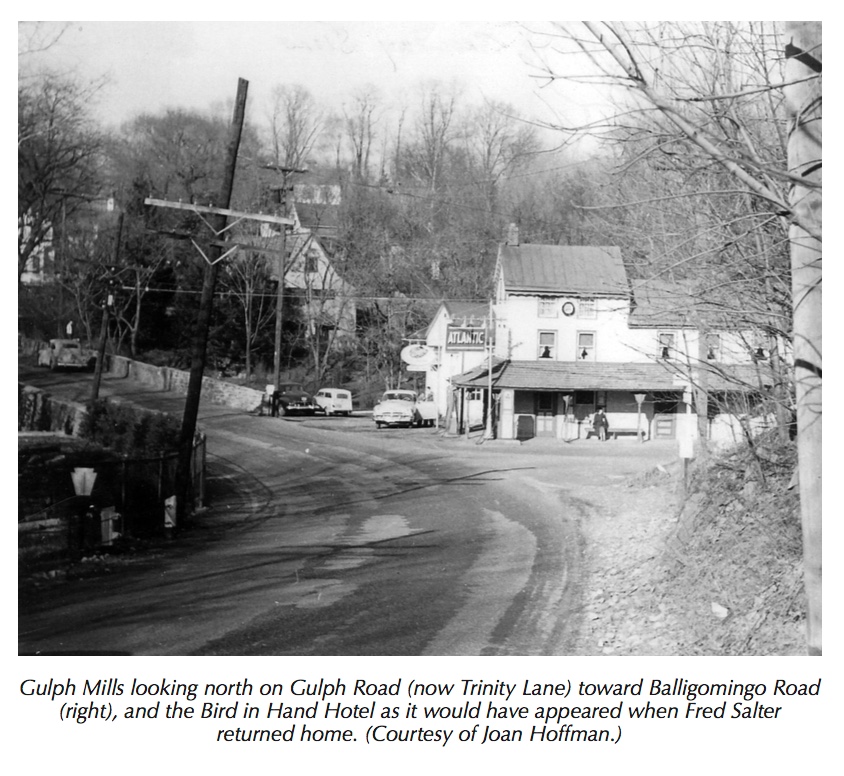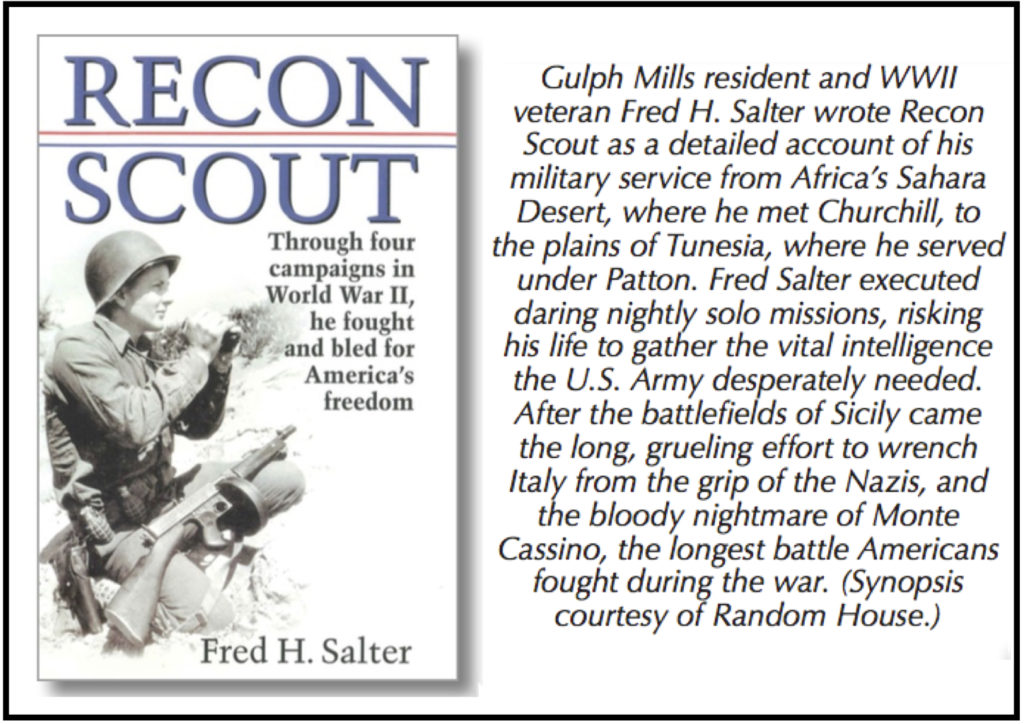Upper Merion student, Fred H. Salter, who grew up in Gulph Mills, was a 1940 graduate of Upper Merion High School. In his novel, Recon Scout, Fred described his growing up in Gulph Mills, his enlistment, and his service in Africa and Europe.
He wrote that his parents migrated to Pennsylvania from England and Wales after World War I, when his father received his discharge from the British Royal Air Force. His folks originally intended to continue on to Australia. Instead, his dad found work in America and decided to settle here. Fred was born August 19, 1922 in Gulph Mills to Frederick Evan and Ethel M. (Jordan) Salter. He recorded that he grew up in the hills of Pennsylvania, ran a trap line, and played fiddle in a hillbilly band at barn dances.
Salter’s army career began with a controversy. “Standing outside the recruiter’s office, I leaned against the building and signed my father’s signature to the enlistment papers. Having the same name as my dad’s, I figured I wasn’t being completely dishonest. If only the army allowed a young boy to enlist without his parents’ consent. I wouldn’t have felt guilty. I thought to myself, ‘For what greater cause need a person bend the arm of the law, than for the opportunity of defending his country. If I’m guilty of a wrongdoing, then so be it.’” He joined the U.S. Horse Calvary while a teenager, fought in North Africa as a recon scout from 1942–1943, then in Sicily in 1943, and also in Italy in 1944.
The return of the service men and women was captured by Fred Salter when he recalled his coming home, as recorded in Recon Scout. The feelings and emotions of his neighbors, himself and probably most township residents and American citizens were captured in his recollections. He reminisces about how the P&W rolled along past villages that he remembered as a boy. Leaving the bullet-shaped car, he stepped out onto the wooden platform and not a soul was in sight. It was a lonely welcome he remembered, but at the same time, that was the way he wanted it.
Once he got off the train, he walked through the woods into the village of Gulph Mills and knew that he was home. No brass band welcomed him. He decided not to walk directly home and surprise his mother; the shock might be too much for her. He went down to the country store in the village to call her. When she picked up the phone, he asked if he could speak to Fred. Not recognizing his voice, she told him that she had not seen Fred
since 1942 and she thought that he was still somewhere in northern Italy.
He proceeded to ask her if she was sitting in a chair and the worst fear came over her. She began to cry. He then told her that this was Fred, her wandering boy. She wouldn’t believe him until he sang The Little Shirt Me Mother Made for Me, the song his father sang in Wales as a young boy.
He walked through the village and everyone came out to greet him. No, there was no brass band, but there was the rhythmic beat of steel pounding against steel. The ringing floated out from beneath the branches of the apple tree next to old Dan McDermott’s blacksmith shop. To Fred, it seemed like Dan was playing The Anvil Chorus.
When he met some people in the village, he noticed that their eyes moistened and he realized that many families had lost loved ones. His coming home must have reminded them that they would never enjoy such a reunion.
Gulph Mills is nestled between steep wooded hills, and Fred recognized that the shadows had lengthened by the time he reached the far side of the village. Before he opened the wooden gate leading to the front yard, he leaned against the giant oak tree that grew beside the road. He stood for a moment and watched his gray-haired mother rocking back and forth in her chair on the porch. Unaware he had arrived in the village, she was busily knitting a scarf for some unknown soldier boy in Europe.
Fred walked up behind her and spoke and tears filled both their eyes.
Later when his dad, sister Ethel, and brother George returned from work, he was welcomed with open arms. He reflected that the trouble he had caused when he left home and joined the army would never be forgotten, but no one ever mentioned it. His folks were just thankful that he had returned safely.

